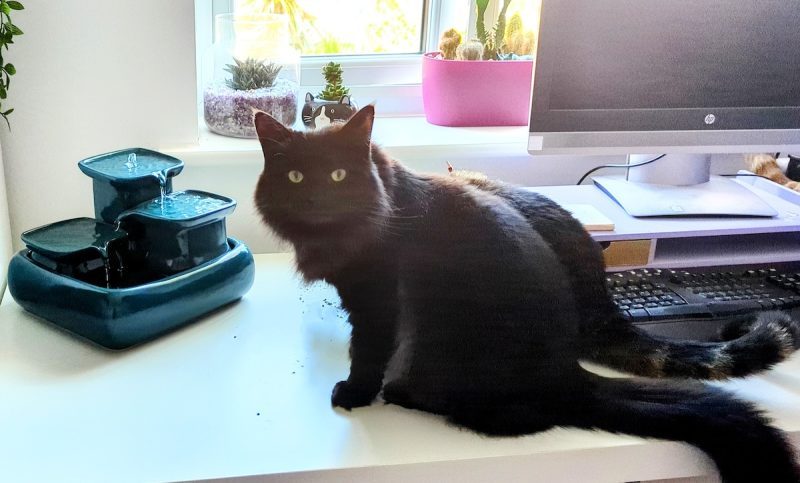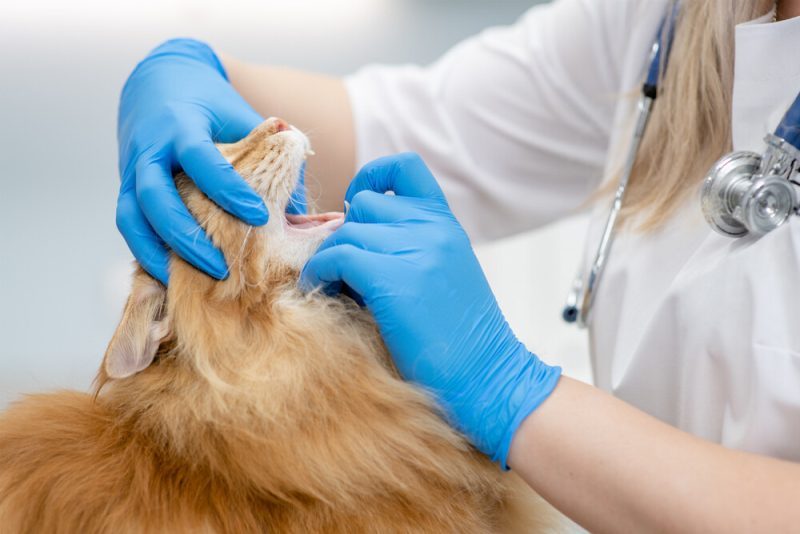
Zelda has a really annoying habit, and I’m embarrassed to admit how long it took me to realize she was trying to tell me something.
Several times a day I would hear the tell-tale ‘clink clink clink’ of her paw raking over the ceramic water bowl. She would do this 10-20 times before settling down to have a drink, leaving traces of black fur and cat litter in her wake. The sound wasn’t annoying, it was the water contamination she would leave behind, meaning that I would have to change the water multiple times throughout the day.
It wasn’t until I was talking to a client about why her cat preferred to drink from her toilet rather than her water bowl, that I realized what Zelda has been trying to tell me.
The Message Was Clear
Okay, so I might be anthropomorphising a bit by saying that Zelda has been trying to send me a message, but I should have been able to figure out why she insisted on paddling in her bowl, a lot sooner than I did.
When people ask “How Can I Get My Cat To Drink More Water?”, or “Why Won’t My Cat Drink From The Bowl?”, there are some basics to consider:
1. A Good View:
A cat likes to be able to keep an eye on their surroundings when they’re having a drink, so a spot with a good aspect will be appreciated.
2. A Quiet Place:
Cats don’t want to quench their thirst in a high-traffic area.
3. The Right Stuff:
Ceramic and stainless steel are in, plastic is out.
4. Proximity to Food and Toilet:
No one wants to eat and drink where they poop, and while you want their water bowl to be near the food, you don’t want to place them side-by-side. Why? It all comes down to their wild ancestry.
In the wild, an old carcass lying in or near the water could indicate contamination, so a wild feline will look for another source. In the domestic world, water that sits too close to the food bowl can become contaminated with food, making it much less desirable.
5. Motion = Freshness:
As a general rule, a moving body of water is a fresh one, free from stagnation and less likely to be contaminated, which is where water fountains can really help, and also what I realized I was missing.
I Quickly Corrected My Mistake
Once the initial embarrassment of realizing I had completely dropped the ball on my feline water provisions, I went straight online to look for a high-capacity drinking fountain, and was lucky enough to find one that was pretty as well!
In addition to the various water bowls already located throughout the house, I now have one that ticks every box:
| Previous Bowl | New Fountain | ||
| A Good View |  |
 |
It doesn’t get much better than this! |
| A Quiet Place |  |
 |
The office is a low traffic, dog-free zone. |
| The Right Stuff |  |
 |
The fountain is ceramic. |
| Proximity to Food & Toilet |  |
 |
Food and litter boxes are on the ground. |
| Motion = Freshness |  |
 |
Multiple levels keeps the water constantly moving. |
Things to Keep In Mind
- Make sure you’re buying a water fountain designed for pets: ornamental and garden fountains may not be made from materials appropriate for drinking from.
- Keep power cords safe: This is particularly important if you have a cat that likes to chew things. You might want to think about investing in a power cord protector.
- Keep them topped up: if the water level drops below a certain level, the motor can burn out. This is also something to keep in mind if you’re going away.
- They still need to be cleaned: although the moving water means that you can often get away with just topping them up, you will still need to give them a proper clean at least once a week.
So now I have a lovely, decorative fountain that the cats all enjoy drinking from, Zelda is no longer swirling her paw around in the bowl, and I know that all the cats are drinking enough fresh water.
The only problem now is that the gentle trickling sound makes me need to pee!
- Read her previous article: Let’s Hear It For the Moggies! An Ode to Mixed-Breed Cats




